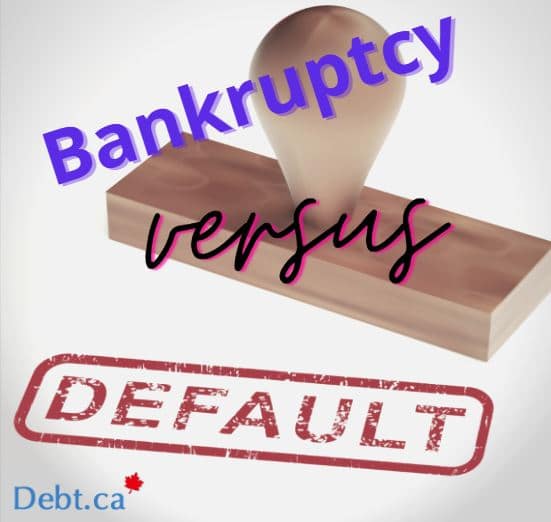There are several options for you when you want to solve the debt problem of your business, and some people resort to filing for bankruptcy in Canada over other options. While declaring bankruptcy has its own merits, it also has its disadvantages. That’s why you should consider other debt relief solutions that can suit your financial situation.
For businesses who are saddled with debts, the two common alternatives to bankruptcy are an assignment for the benefit of creditors and out-of-court debt restructuring or corporate workout. If you want to know how these two options work, just read this blog post.
Assignment for Benefit of Creditors
An assignment for the benefit of creditors is a device used by a financially distressed debtor to liquidate the assets of his/her business to creditors. If you think resorting to business bankruptcy is not for you, this alternative is a good option if you want to avoid bankruptcy proceedings.
State laws concerning assignments differ, and the proceedings are typically supervised by state courts instead of federal bankruptcy courts. As mentioned earlier, an assignment liquidates the assets of an economically troubled business. It is not for the rehabilitation or reorganization of the business.
The debtor or assignor transfers control, custody, and equitable title of its property and assets to an independent assignee. The role of assignees is somewhat close to bankruptcy trustees. They are in charge of liquidating the business assets and applying the sales proceeds of the same to the creditors in accordance with the law.
After the necessary payments are distributed to the creditors and the assignee’s fees are paid, any funds or interest left will be sent back to the business owners and shareholders.
The Process of an Assignment
The assignor or debtor should formally write that it wishes to assign its assets to an assignment estate. The business typically selects the assignee, but creditors can also influence the process of selecting an assignee. A business that wants to undergo this process should choose a reputable assignee to get the confidence of creditors.
Moreover, the business must file a list of assets and liabilities, including the creditors’ names and addresses. Then, the assignee will inform the creditors mentioned on the list that a certain debtor of theirs has filed for an assignment. A deadline for the filing of claims by the creditors will also be established by the assignee.
Assignments don’t have an automatic stay injunction that’s commonly filed after a bankruptcy. That’s because a business isn’t likely to be pestered by creditors who want to collect or repossess its assets after an assignment. After all, it’s futile to take action against an entity after an assignment because the management has already assigned its assets to an assignment estate.
Pros and Cons of Assignment for the Benefit of Creditors
One advantage of an assignment for the benefit of creditors is that the sale of the assets is likely to happen efficiently and without long delays. It’s because the assignee will send a bill of sale to the buyers proving that the creditors have no claim on the assets. The assignee can also sell the assets without an order from the state court.
On the other hand, the downside of an assignment is that it’s difficult for the assignee to force the transfer of contracts and leases without the permission of the lessors or other parties to the contract. Compared to a bankruptcy case, such permission of the lessors or third parties is unnecessary.
Out-of-Court or Corporate Workouts
An out-of-court or corporate workout is a consensual agreement between a debtor and creditors to solve a debt problem without resorting to filing a case in court. This approach is more preferable than filing for bankruptcy.
However, you have to ensure that your creditors will agree to your proposal. A corporate workout may not push through if one or two creditors refuse to participate.
Before proposing a workout plan, determine if the business can recover. In an out-of-court or corporate workout, the management has to repay its creditors via an equity infusion, a new financing, or its future cash flow (or all of the three).
Getting Legal Advice for the Workout Process
Hiring an attorney with experience in business reorganizations is essential. Especially if cash flow is tight and the creditors are starting to meddle with business operations. A business bankruptcy lawyer can assist you through the entire process and serve as an intermediary between you and dissatisfied creditors.
The management should also hire a turnaround consultant to help in the process. A turnaround advisor can help in the preparation of the financial projections of the company, formulation, negotiation, and implementation of the workout plan. He/she can also communicate with your creditors.
Pros and Cons of an Out-of-Court or Corporate Workout
An out-of-court or corporate workout can stop creditors from filing a lawsuit. In exchange, they get complete or partial payment of the outstanding debt. It will also prevent you from paying for the costs of bankruptcy proceedings.
The downside of a workout is that you can’t force a creditor to accept a corporate workout proposal. In a bankruptcy, there’s a chance to compel a dissenting creditor to agree with a plan.
Licensed Insolvency Trustee
Individuals and businesses struggling with debts can also hire a licensed insolvency trustee. A LIT is a professional licensed and regulated by the Superintendent of Bankruptcy in Canada. He or she provides credit counselling to people and help them make an informed decision when dealing with their debt problems.
Hiring an insolvency trustee is suitable to avoid business and personal bankruptcy. Often, such professionals will recommend you to propose a consumer proposal or debt settlement to your creditors. In this way, you can lower the interest rates and monthly payments on your debts. It can also protect your business or personal property from your creditors.
Takeaway
If your business is struggling financially because of debts, you shouldn’t resort to declaring bankruptcy right away. There are alternatives to bankruptcy that can make it easier for you to deal with your creditors.
Try for an out-of-court workout plan or an assignment for the benefit of creditors for that purpose. Or you can read articles from debt.ca concerning alternatives to bankruptcy for that purpose








